

I finally had a chance to open my Rainbow Resource box the day after my open house (it took every ounce of will-power I possessed not to be derailed from my to-do list when it arrived the day before…). Box of books(/curricula/resources)= PARTY!!
Inspiration and Food for Thought
:: That Shriveled Grind (on teaching reading) by Andrew Kern @ Quiddity
So the child grows through three stages: dependent reading, decoding, and independent reading. I cannot stress enough how important it is for the child to continue to read dependently when he is learning to decode. The four year old who is reading fairy tales through his mother’s eyes and mouth is gaining far more intellectual skill than the five year old who is not being read to beyond what he can decode. And that older child is probably losing the thrill of reading by virtue of the pap on which he is practicing decoding. Nobody wants to “see Spot run” in such a devastatingly unimaginative way.
:: Lectio divina: paying attention by Katherine Pershey @ Simple Mom
One of my favorite definitions of prayer is that it is the practice of paying attention. Not merely that you must pay attention while you’re praying, but that prayer itself is the act of attending: to God, but also to the beauty – and ugliness – before us.
:: Beauty in the Word: Rethinking the Foundations of Education by Stratford Caldecott (from the passage titled ‘Attention’)
"[T]he important thing, the real goal of study, is the 'development of attention.' Why? Because prayer consists of attention, and all worldly study is really a stretching of the soul towards prayer. 'Never in any case whatever is a genuine effort of the attention wasted. It always has its effect on the spiritual plane and in consequence on the lower one of the intelligence...'"
"Attention is desire; it is the desire for light, for truth, for understanding, for possession. It follows, according to Weil, that the intelligence 'grows and bears fruit in joy,' and that the promise or anticipation of joy is what arouses the effort of attention: it is what makes students of us."
I wish I could quote the whole section, because there are several other gems to be found.
I’ve been thinking about the following idea recently. Only half of me agrees.
:: Why Having Different Teachers for Each Subject May Be Harming Our Students by Matt Bianco at Yahoo! Voices
If our goal as parents really is a child who will learn all subjects well, maybe what we need is to model the possibility of such a thing to them. If a single, master teacher presented each of the subjects to our children, day in and day out, then maybe, just maybe, our children would see that it is possible for them to learn all subjects well. A master teacher, in this sense, would present the subjects equally, integrating them throughout the day. He or she wouldn't be able to help but draw information into a math lesson from the earlier history lesson, or into an English lesson from an earlier science lesson. From this, the children would learn that each of the subjects both integrate well and are on equal footing as far as importance of learning goes.
:: Why Does Classical Conversations Encourage One Teacher for All Subjects? by Matt Bianco at Classical Conversations
The generalist, perhaps better referred to as the master teacher, teaches all subjects. This demonstrates to the child, that the child not only should learn all subjects well, but can learn all subjects well. After all, the master teacher has done it, and proves it by teaching all subjects. He also shows—through a tremendous display of beauty—that no one subject is more important than another; he is able to beautifully integrate all subjects throughout the day. While studying chemistry, he can remind them of their history lesson in the days of Boyle, then weave in Latin by reminding the students how scientific journals had, at one point, been published only in Latin, but then—to reach the masses—began being published in the vulgar tongue of each nation. He can use math and logic as he works through balancing chemical equations. He can do all of this because he was right there learning all of these things with them, through each and every subject.
I think the ideas of an integrated curriculum and a master teacher to be very compelling, but I think there is most certainly a place for learning from specialists (learning to play and instrument or a sport, for instance). And when so many parents, and even teachers, are still in the process of redeeming their education, where do we find these master teachers?
Also, are we all meant to be master generalists? In contrast, I’ve read arguments that all children should specialize. I think the truth is somewhere in the middle, and varies from person to person. I’d love for my children to have a strong, integrated, foundation in basic skills and cultural literacy. I’d also love for them to find a passion and pursue it to excellence.
Ask Andrew - Guest Answer by Chris Perrin from CiRCE TV on Vimeo.
“To some degree great teachers eventually make themselves irrelevant because their students have become like themselves. They have become seekers and finders.”
:: Learning to Love What Must Be Done by Dr. Christopher Perrin of Classical Academic Press @ CiRCE Institute
Education, after all, is largely a matter of routine. Nothing is mastered without regular visitation, review and study. And education never stops. If we can, we should cast the work our students do as a labor of love, a life-long love, and we should love what they do too. Education will have its high moments, its epiphanies, break-throughs and moments of joy--much like a marriage. But the larger tranquility of a good education comes from the regular labor of worksheets, translations and reading assignments, in the same way a good marriage grows on preparing a meal, raking the lawn and taking a walk.
Dr. Christopher Perrin in the video above mentions Socratic dialogue, and I enjoyed the following video about Socratic Circles by Matt Bianco. I think that the Socratic discussion is one of the highlights of the Classical Conversations Challenge program.
:: Where are you headed on this trip? @ All Things Friday (more Classical Conversations musing…)
I saw where we FOUNDATIONS parents are headed! I saw small groups of diverse kids in relationship, enjoying each other while hashing out logic, debating how to handle illegal immigration, challenging one another,and recalling the path of food through our digestive system parts, while diagramming what the organs look like, defining their function and noting God’s handiwork in making the VERY useful appendix [yes- it actually serves a very cool purpose!]
:: Teaching History Chronologically @ Veritas Press:
"It doesn’t take much study of history in the recent past to see that it connects to something before. Why was America founded? The Puritans and Pilgrims sought religious freedom, settling in Plymouth in 1621. Religious freedom from what? T...yrannical religious leaders in Europe. Why were some religious leaders tyrannical? Tyranny arose in various settings from the Reformation begun in 1517 with Martin Luther. What caused Martin Luther to begin the Reformation? Several centuries of difficulty and abuse within the Western Church. What caused these difficulties? And on and on—you get the picture."
:: Why I’m No Homeschool Superstar @ Amongst Lovely Things
I have become convinced that a peaceful and happy mother is the real key to successful homeschooling. Choosing excellent materials is important, of course. Establishing a healthy daily routine is enormously helpful. Developing an active social life is essential. We can read up on every curriculum on the market, listen to webcasts, devour articles, attend conferences, participate in co-ops or support groups, and otherwise get our ducks in a perfect little row, but none of this will have the same impact on the life of a homeschooling family as a peaceful and happy mother.
(By the way, I'm a "give my kids great books to read" and "keep up with the laundry" mom. Not a social activities mom. Not a science experiment mom. Not a crafty mom. Not an elaborate project mom. Not a fix awesome dinners every night mom. Not a leader-tutor-group organizer mom. Not an elaborate daily/weekly lesson plans mom. Not a gardening/sewing/knitting/natural-anything mom. Ha!)
At the breakfast table.
Luke: (Out of the blue.) Who was Hans Christian Andersen?
Me: He wrote fairy tales.
Luke: Did he fight in a war?
Levi: No, that was C. S. Lewis.
Me: Would you like to read a book about him?
Luke: Sure.
(Rummage through the book shelves. Find a simple chapter book about Hans Christian Andersen and hand it to Luke. He heads to the couch to snuggle up with the book.)
Luke: (After reading for a little bit.) I was right. Well, kinda. He was alive during a war and his father fought in it, but his side lost. He was fighting for Napoleon. (Breaks into song about Napoleon. Thank you, CC.)
Me: How did you remember that?
Luke: I don't know. (He read the book over a year ago.)
Me: Why were you thinking about Hans Christian Andersen?
Luke: I read another book with a character named Hans.
Me: Oh, okay. (As I add beautifully illustrated versions of The Snow Queen and The Nightingale to his pile on the couch...)
I LOVE my life.
:: Why Christians Should Read Fiction @ Moore to the Point
But, finally, good fiction isn’t a “waste of time” for the same reason good music and good art aren’t wastes of time. They are rooted in an endlessly creative God who has chosen to be imaged by human beings who create. Culture isn’t irrelevant. It’s part of what God commanded us to do in the beginning, and that he declares to be good. When you enjoy truth and beauty, when you are blessed by gifts God has given to a human being, you are enjoying a universe that, though fallen, God delights in as “very good.”
:: The Crisis of Our Time by Michael Hicks @ CiRCE Institute
I speak Truth, but as a second language, and they laugh at my accent.
:: Greek to Us: The Death of Classical Education and Its Consequences by E. Christian Kopff @ The Imaginative Conservative
Jefferson and Adams had heard their good friend, Dr. Benjamin Rush, plead for the elimination of the Classics from education in favor of mathematics, science, engineering and Christianity. When they answered him, they emphasized the close connection between language and thinking. A rich vocabulary and a command of grammar are essential for effective writing and speaking. Latin and Greek are the sources for English vocabulary in many important areas, such as law, medicine, science, philosophy, politics and theology, and provide a solid grounding in grammar. Literary, historical and philosophical masterpieces written in Greek and Latin are the historical bases of our culture and are best understood and appreciated when read in the original languages.
Lists and Lessons from March and April
Classical Conversations Weeks 20-24. Foundations: includes social time and public speaking. Essentials: (Levi) One afternoon each week for 24 weeks; includes grammar, vocabulary, writing, public speaking, and challenging math games.
A ton of memory work review, prepping for Memory Master testing. Completion of 4 Memory Master proofs (reciting all of the CC cycle 1 memory work) each for Levi, Luke, and Mom.
Faith:
God Our Provider (CD) (Bible memory songs)
The Children's Illustrated Bible (reading through together, again)
The Action Bible (Luke)
Boys Bible (Levi)
The Gospel Story Bible: Discovering Jesus in the Old and New Testaments (Leif)
Telling God's Story: Year Two
The Easter Story by Brian Wildsmith
Buck Denver Asks: What's in the Bible? Volume Ten - Jesus is the Good News! (DVD)
What’s in the Bible? Volume 1 (In the Beginning: Genesis)
What’s in the Bible? Volume 2 (Let My People Go: Exodus)
How the Bible Came to Us: The Story of the Book That Changed the World
The Parables of Jesus by Earnest Graham (new from Olive Branch Books; the boys love it!)
Math:
CC weekly math memory work: mathematical laws
CC Essentials challenging math games (Levi, in class)
Teaching Textbooks (daily lessons for all three boys)
Life of Fred (always)
Beast Academy
Various ipad apps
A Dollar, a Penny, How Much and How Many? (Math Is Categorical)
The Number Devil: A Mathematical Adventure
Sir Cumference Books
Pythagoras and the Ratios: A Math Adventure
And many more math books!
Science:
CC weekly science memory work: Earth Science
An Egg Is Quiet
A Seed is Sleepy
Rock N Learn Physical Science (DVD)
Eyewitness Science DVDs (Tree, Insect, Amphibian, Reptile, Mammal, Bird, Rock and Mineral, Weather, Volcano, Natural Disasters)
National Geographic Kids magazine
Various Bill Nye and Sid the Science Kid DVDs
P.E.:
Swim team practices and meet (swim lessons for Leif)
Fine Arts:
Beethoven's Wig: Sing Along Symphonies
Zin! Zin! Zin! A Violin
CC Fine Arts—composers and instruments of the orchestra
Sebastian Bach, The Boy from Thuringia by Opal Wheeler (audio book)
Handel at the Court of Kings by Opal Wheeler (audio book)
Mr. Bach Comes To Call
Mozart's Magnificent Voyage
Classical Kids: Hallelujah Handel!
Mozart: The Wonder Child: A Puppet Play in Three Acts
Charlotte in London (I adore the Charlotte in _______ series by Joan MacPhail Knight and Melissa Sweet)
Language Arts:
Classical Conversations Essentials of the English Language (Levi)
IEW writing (theme-based: Ancients, Levi in CC Essentials Class)
CC grammar memory work (helping verbs/linking verbs)
All About Spelling (Levi and Luke: Level 4, lessons 1-4; Leif: Level 1, up to lesson 21)
Prescripts (the new handwriting workbooks from Classical Conversations)
MCT Language Arts, Voyage level
(I went upstairs to put Lola down for a nap and came back downstairs to this note:)

Latin:
Latina Christiana (more review)
Minimus: Starting out in Latin
Geography:
CC geography memory work
Continental Blob Maps (from Half-a-Hundred Acre Wood)
Map drawing/tracing
History, Literature, and Historical Fiction:
CC weekly memory work: history sentences and timeline
(Levi ancient history-themed writing with IEW)
The Story of the World: Volume 1: Ancient Times: From the Earliest Nomads to the Last Roman Emperor (?-ch. 27)
The Kingfisher History Encyclopedia (Levi, assigned pages)
The Usborne Encyclopedia of World History (Luke, assigned pages)
The Bronze Bow by Elizabeth George Speare (historical fiction, 254 pp, Levi-IR, Luke listened to some of the audio book)
Drive Thru History: Asia Minor (East Meets West) (DVD)
Within the Palace Gates: The King's Cupbearer by Anna P. Siviter (historical fiction, Persia/Nehemiah, 444 BC, 308 pp, Levi-IR)
Ancient Sparta (Explore Ancient Worlds)
The Pomegranate Seeds by Laura Geringer (literature)
Sun-Day, Moon-Day: How the Week Was Made
Aesop's Fables for Children (literature)
The Eagle of the Ninth by Rosemary Sutcliff (historical fiction, Levi-IR)
The Silver Branch by Rosemary Sutcliff (Roman Britain Trilogy #2) (historical fiction, Levi-IR)
Alexander the Great: True Lives
Alexander the Great (First Books--Ancient Biographies)
History News: The Greek News
You Wouldn't Want to Be an Aztec Sacrifice! Gruesome Things You'd Rather Not Know
Jabuti the Tortoise: A Trickster Tale from the Amazon
The Roman Twins by Roy Gerrard
Aristotle (Historical Biographies)
Ancient Athens (Explore Ancient Worlds)
Aztec, Inca & Maya (DK Eyewitness Books)
Roman Myths by Geraldine McCaughrean (It isn’t as easy to find lovely books about Roman myths as it is to find Greek myths, so I was delighted to find this one at the library—even more so because I’m rather fond of Geraldine McCaughrean. I think I’ll be adding this to my list of ancient literature.)
Jason and the Golden Fleece (a great complement to Sutcliff’s retellings of Homer and Lively’s retelling of Virgil, also added to my ancient literature list)
Literature Study
Book Detectives literary analysis book club: Martha the Movie Mouse and Twice Upon A Time
Classic Tales and Fables for Children by Leo Tolstoy (Levi-IR)
The Swiss Family Robinson by Johann David Wyss (audio book)
Fairy Tale Life of Hans Christian Andersen (Scholastic Biography)
Hans Christian Andersen's The Nightingale
The Tinderbox by Hans Christian Andersen

Levi’s Free Reading:
Terrestria Chronicles - The Dragon's Egg
Terrestria Chronicles - The Golden Lamps
Terrestria Chronicles - The Great War
Lots of re-reads off of the shelf (also re-read all of The Roman Mysteries series)
Luke’s Free Reading:
The Thieves of Ostia (The Roman Mysteries) by Caroline Lawrence
The Secrets of Vesuvius (The Roman Mysteries)
The Dolphins of Laurentum (TRM)
The Twelve Tasks of Flavia Gemina (TRM)
The Enemies of Jupiter (TRM)
The Pirates of Pompeii (TRM)
The Gladiators From Capua (TRM)
The Colossus of Rhodes (TRM)
The Fugitive From Corinth (TRM)
The Saturdays by Elizabeth Enright
Leif’s Free Reading:
Geronimo Stilton books, Magic Tree House books, and miscellaneous others
Miscellaneous Lovely Picture Books:
Non-Fiction:
The Great Voyages of Zheng He (Demi’s books are gorgeous, and this is no exception!)
Unspoken: A Story From the Underground Railroad (a beautiful wordless picture book)
The Price of Freedom: How One Town Stood Up to Slavery
Nelson Mandela by Kadir Nelson
Brave Girl: Clara and the Shirtwaist Makers' Strike of 1909
Fiction:
The Sign Painter by Allen Say (Love books by this author!)
The Man Who Dreamed of Elk Dogs: & Other Stories from Tipi (Wisdom Tales)
Shin-chi's Canoe
My Father's Arms Are A Boat by Stein Erik Lunde
Mister Whistler by Margaret Mahy
Miscellaneous:
Science workshop with charter school
Amtrak/Mission Mill/State Capitol Building field trip with charter school

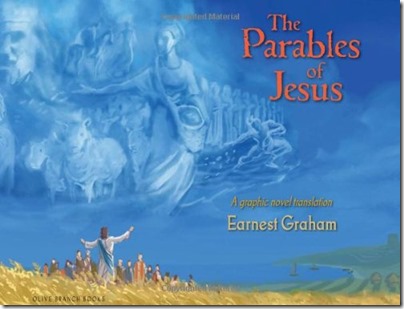
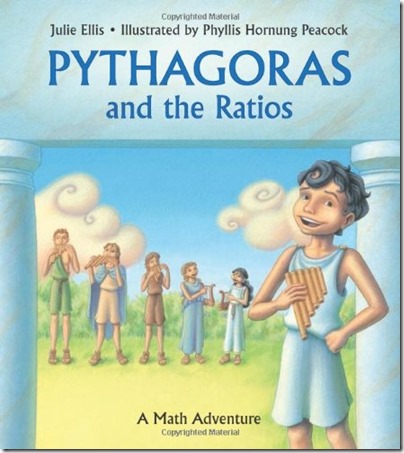

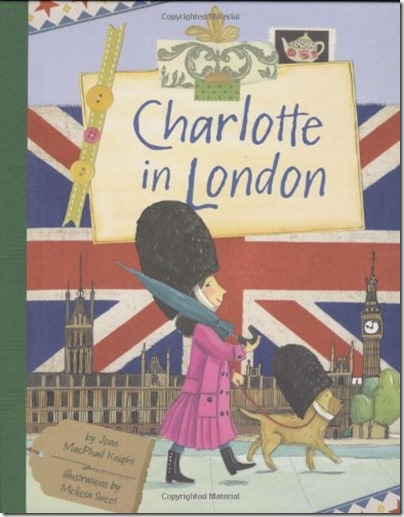
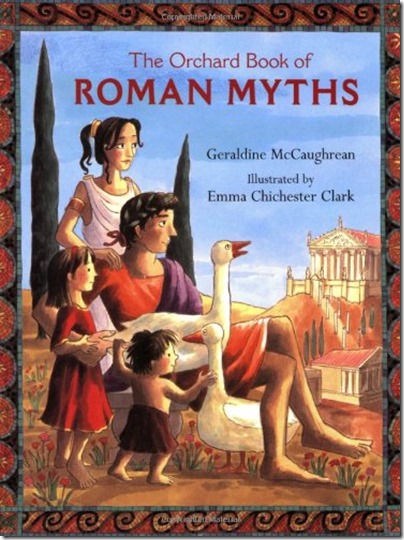
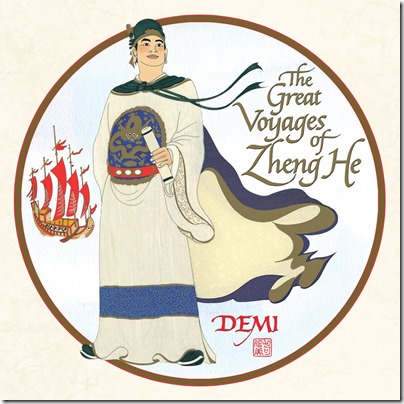
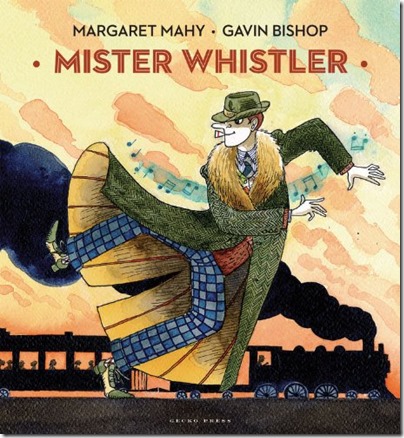
2 comments:
When you linked to "all children should specialize"...I just knew you were going to link to Penelope Trunk. I just got done reading all her homeschool archives. So interesting. I use WTM curriculum, but I am really challenged by some of her thinking. Wouldn't you like to get in a room with her and just discuss?
Wonderful post! I stumbled upon your site today and have loved looking through it all!
Post a Comment